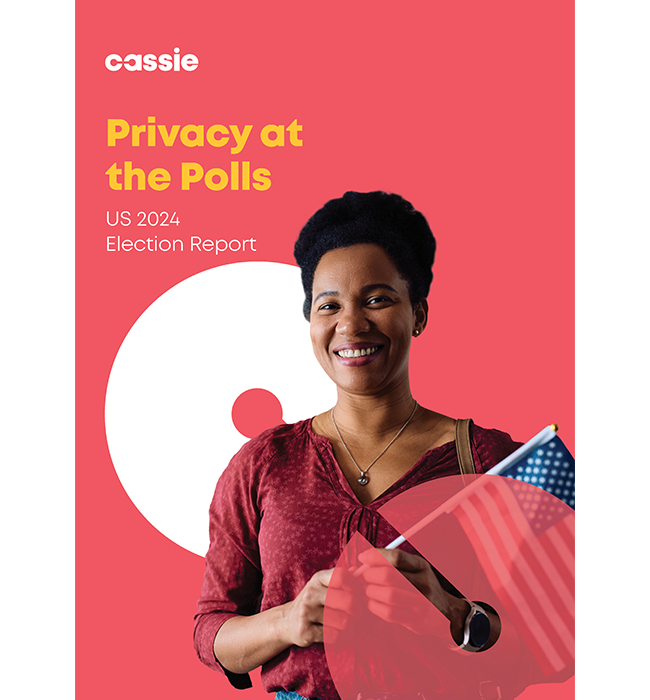How do targeted political ads impact the average US voter?
Posted: July 31, 2024
The 2024 U.S. presidential election is taking place in a wholly digital world. Americans are using the Internet to register to vote, follow their favorite candidates, and stay up-to-date on the latest political news.
But with personal information given freely and often without concern (40% of those who engage in politics online rarely or never consider how political sites use their information), we’re seeing a drastic uptick in targeted political ads.
These campaigns use everything from voters’ location to their taste in music to design content specifically geared to garner favor and attention, and they’re only growing in popularity: 46% of respondents to Cassie’s Privacy at the polls survey noted they’ve seen a rise in political ads this election cycle.
Here’s how that’s impacting voters.
The influence of targeted ads
The Privacy at the Polls report revealed that targeted ads carry quite a bit of weight for the average voter. Around one in five respondents (22%) went so far as to share that they’ve reevaluated their political views due to targeted ads they’ve been served.
This might be good news for lobbyists and candidates looking to sway voters to their cause, but it introduces cause for concern: what happens when targeted ads come from a disreputable source? Or if they were created using data that was unethically collected?
Many voters have thus been left worrying about the hidden impact of these tactics. Eighty-nine percent of respondents believe the majority of Americans aren’t aware of how targeted ads view their biases.
When targeted ads backfire
As such, it should come as no surprise that voters are taking targeted political content with a grain of salt, often to the detriment of the very campaigns behind them. Half of voters agreed that targeted ads make them less likely to trust a candidate, and 69% noted it makes it harder to trust any political information online.
Gen Z, the first digitally native generation, is more wary of targeted ads than other cohorts. This generation has been exposed to the infinite sprawl of the Internet since they were born, which typically makes them more savvy and discerning in online spaces. Members of Gen Z were thus more likely to say targeted political content makes them less likely to trust a candidate (20%) and political information (19%) online.
The political landscape is becoming increasingly muddled thanks to the Internet. In our next post, we’ll explore how the advent of artificial intelligence (AI) is only serving to make things more confusing.

Download our Privacy at the polls: US 2024 election report
As the 2024 US election nears, data privacy is becoming a critical issue for voters. Our newest report delves into the connection between voter behavior and data privacy, revealing some surprising findings:
- 4 in 10 voters rarely or never consider how political websites use their personal data.
- 46% of voters have noticed an increase in targeted political ads this election cycle.
- 81% of voters say that the rise of AI makes them more concerned about data privacy legislation and political platforms than in previous election years.
Read the full report now!

